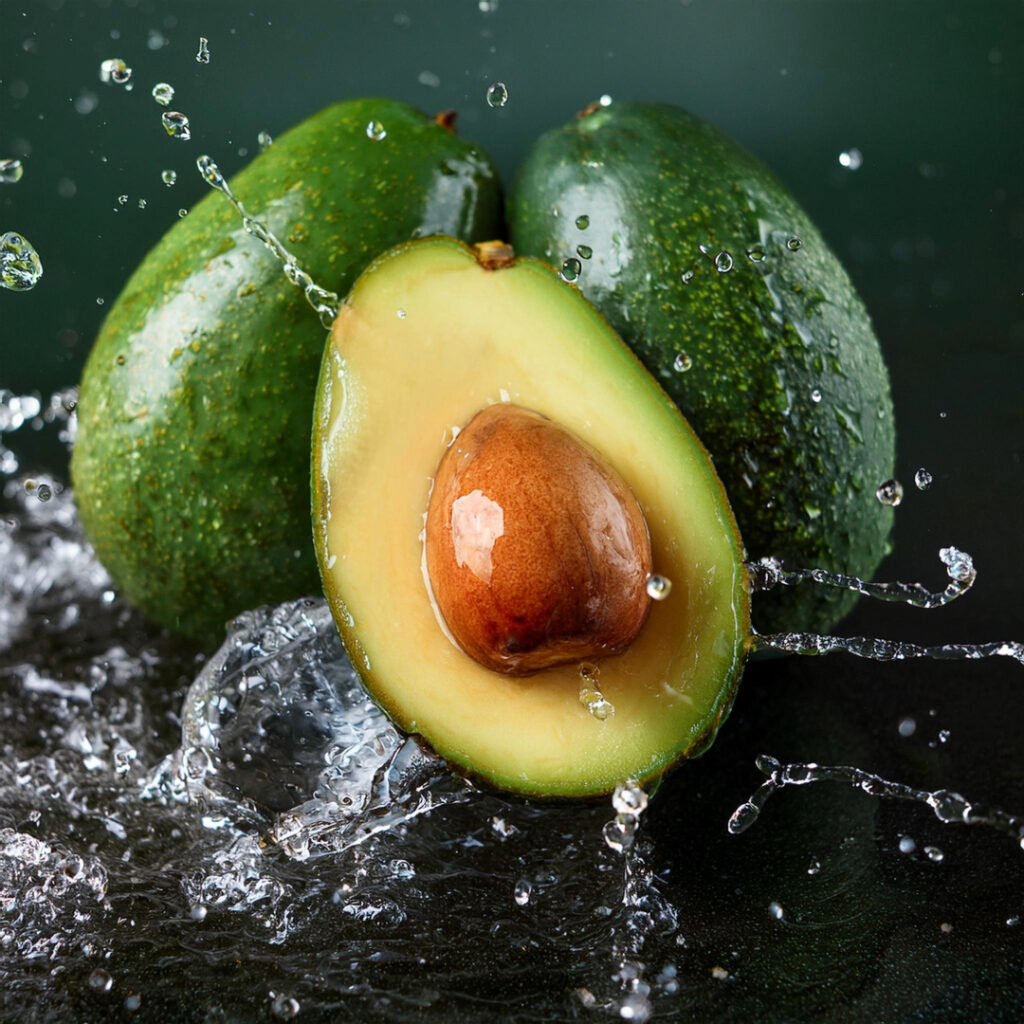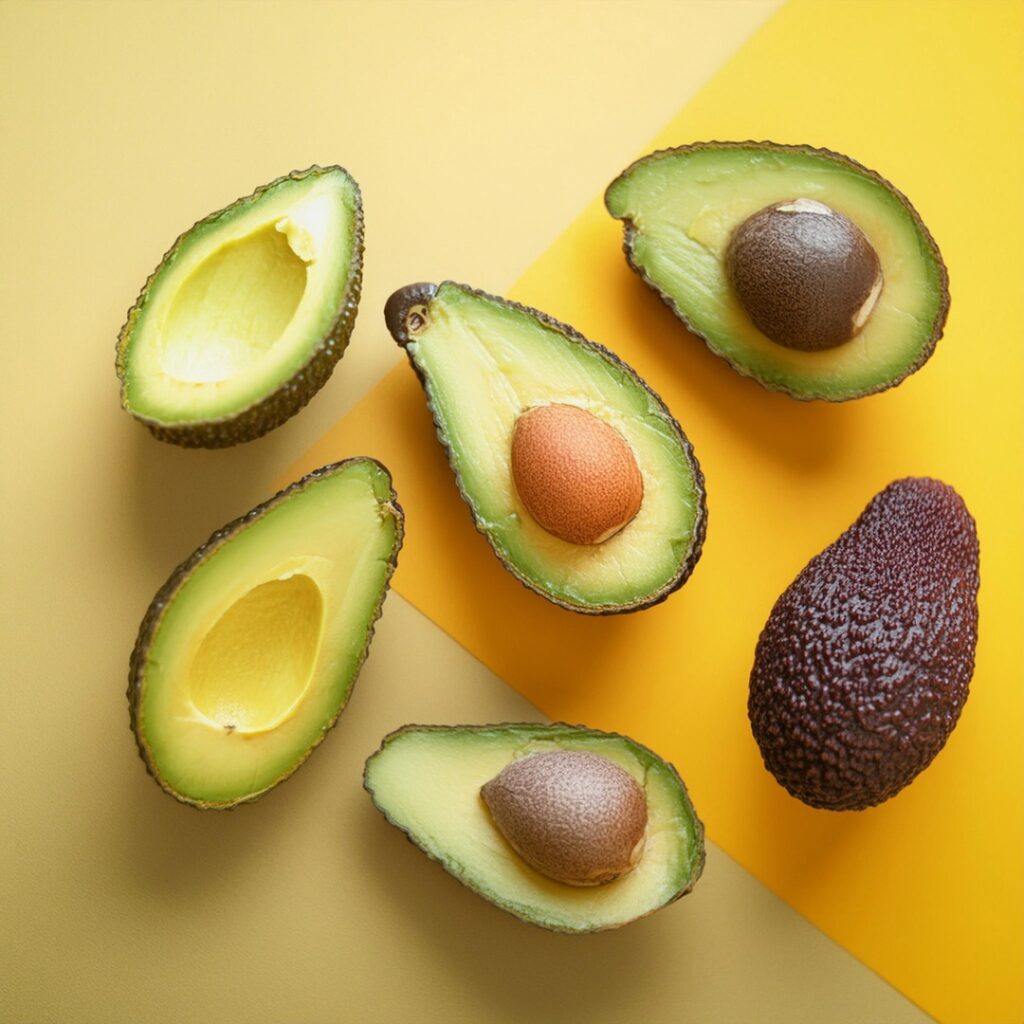Avocados have become a staple in many diets worldwide, especially with their rise to fame on social media and their association with health-conscious eating. This nutrient-packed fruit is versatile in cooking, beneficial for weight loss, and is an essential component in a well-balanced diet. But how much do you really know about avocados? In this blog post, we’ll explore surprising facts about avocados, ranging from their health benefits to their fascinating history, helping you appreciate this superfruit even more.
1. The History of Avocados: From Ancient Times to Today
Avocados have a rich history that dates back thousands of years. Here are a few interesting historical facts about this beloved fruit:
- Origin in Mesoamerica: The avocado tree (Persea americana) is believed to have originated in Mesoamerica, specifically in present-day Mexico, around 10,000 years ago. Archaeologists have found evidence of avocado cultivation as early as 5,000 BC.
- Aztec and Mayan Civilizations: Avocados played a significant role in the diets of ancient civilizations like the Aztecs and Mayans. The Aztecs called the fruit “ahuacatl,” which means “testicle” in their language, due to its shape. They believed avocados had aphrodisiac properties and were a symbol of fertility.
- European Introduction: Spanish explorers were among the first Europeans to encounter avocados in the 16th century. The fruit was introduced to Europe and spread to other parts of the world, eventually making its way to California in the 19th century.
2. Avocados and Health: Why They’re a Superfood
Avocados are often referred to as a “superfood” due to their high nutrient content. Let’s take a closer look at the health benefits that make avocados a staple in many health-focused diets.
2.1. Nutrient-Dense Powerhouse
Avocados are incredibly nutrient-dense, making them a valuable addition to any diet. They are loaded with:
- Healthy Fats: Avocados are rich in monounsaturated fats, particularly oleic acid, which has been shown to reduce inflammation and promote heart health.
- Vitamins and Minerals: Avocados are an excellent source of vitamins C, E, K, and several B vitamins. They are also high in potassium, containing even more than bananas!
- Fiber: A single avocado contains around 10 grams of dietary fiber, making it an excellent choice for digestive health and maintaining a healthy gut.
2.2. Supports Heart Health
The monounsaturated fats found in avocados help lower levels of LDL (bad) cholesterol while increasing HDL (good) cholesterol. Studies have shown that regular consumption of avocados can reduce the risk of heart disease, the leading cause of death globally. This makes avocados a great addition to a heart-healthy diet.
2.3. Avocados for Weight Loss
Despite being high in fat, avocados can actually aid in weight loss. Here’s how:
- Satiety: The combination of healthy fats and fiber helps you feel fuller for longer, reducing overall calorie intake.
- Low in Carbs: Avocados are low in carbohydrates, which makes them an ideal choice for low-carb or ketogenic diets. This can help regulate blood sugar levels and promote fat loss.
- Boosts Metabolism: The healthy fats in avocados may increase your body’s ability to burn fat, making it easier to maintain a healthy weight.
2.4. Promotes Healthy Skin
Avocados are also great for your skin! The vitamins E and C in avocados help protect the skin from oxidative damage, which can lead to wrinkles and other signs of aging. The healthy fats in avocados keep your skin moisturized and hydrated from the inside out.
3. Fun Facts About Avocados
Now that we’ve covered the basics, let’s dive into some lesser-known and surprising facts about avocados:
3.1. Avocados Are a Fruit, Not a Vegetable
Many people assume that avocados are a vegetable due to their savory flavor and frequent use in salads and savory dishes. However, avocados are technically a fruit, and more specifically, a berry! They have a fleshy pulp surrounding a seed, which classifies them as berries.
3.2. There Are Hundreds of Avocado Varieties
While the Hass avocado is the most popular variety in the United States, there are over 500 varieties of avocados worldwide. Some of the lesser-known types include:
- Fuerte Avocado: This type is pear-shaped and has smooth, thin skin. It has a mild flavor and is commonly grown in Mexico and California.
- Bacon Avocado: Known for its lighter flavor and larger size, the Bacon avocado is grown in the winter months and has a less creamy texture than the Hass variety.
3.3. Avocados Ripen After Harvest
Unlike many fruits that ripen on the tree, avocados only ripen after they’ve been harvested. This makes them a unique fruit that can be stored unripe and allowed to ripen over time, giving you more control over when you want to use them.
3.4. The Largest Avocado Weighs Over 5 Pounds
Avocados can grow to be enormous! The heaviest avocado ever recorded weighed in at a whopping 5.6 pounds. It was grown in Hawaii in 2018, setting a Guinness World Record.
3.5. Avocado Trees Can Live for Over 100 Years
Avocado trees are incredibly long-living. While they don’t produce fruit for their entire lifespan, some avocado trees have been known to live for over 100 years. In fact, some of the original avocado trees planted in California in the 19th century are still alive today.
4. Avocados in Cooking: Delicious and Versatile
Avocados are a dream ingredient for any cook, as they can be used in a wide variety of dishes. From savory to sweet, here are some fun and creative ways to incorporate avocados into your cooking:
4.1. Classic Avocado Toast
Avocado toast has become a go-to meal for health-conscious eaters, and for good reason. It’s easy to make, delicious, and full of nutrients. To make the perfect avocado toast:
- Ingredients: Whole-grain bread, ripe avocado, olive oil, salt, and pepper.
- Toppings: Add a poached egg, cherry tomatoes, or even smoked salmon for extra protein.
4.2. Avocado Smoothies
While avocados might not be the first ingredient you think of when making a smoothie, they add a creamy texture and boost the nutrient content. Blend an avocado with:
- Base: Almond milk, spinach, and a banana.
- Add-ons: Protein powder, chia seeds, and honey for sweetness.
4.3. Baking with Avocado
Avocados can also be used as a butter substitute in baking. The creamy texture of avocados makes them an excellent alternative to butter, reducing the calorie and fat content of baked goods. Try using avocado in:
- Brownies: Replace half the butter or oil in your brownie recipe with mashed avocado for a healthier treat.
- Muffins: Add avocado to your muffin batter for extra moisture and a boost of healthy fats.
5. Avocado Diet: Incorporating Avocados for Weight Loss and Health
Many people are curious about how avocados can fit into a healthy diet, particularly for those focused on weight loss. Here are some tips on incorporating avocados into your diet:
5.1. Portion Control
Avocados are calorie-dense, with one medium avocado containing around 234 calories. While they are packed with healthy fats and fiber, it’s important to practice portion control if you’re trying to lose weight. Stick to half an avocado per serving to avoid consuming excess calories.
5.2. Add Avocados to Your Salads
One of the easiest ways to include avocados in your diet is by adding them to your salads. Avocados pair well with leafy greens, tomatoes, cucumbers, and other vegetables. They also help your body absorb fat-soluble vitamins like A, D, E, and K from your veggies.
5.3. Use Avocados as a Spread
Instead of using mayonnaise or butter, try spreading mashed avocado on sandwiches, wraps, or toast. This simple swap cuts down on unhealthy fats and adds a dose of heart-healthy monounsaturated fats.
5.4. Pair Avocados with Protein
Avocados are a great complement to protein-rich foods like eggs, chicken, and fish. Combining avocado with protein will keep you full and satisfied for longer, making it easier to stick to your weight-loss goals.
6. Avocados and Health: A Key Player in a Balanced Diet
As we’ve seen, avocados are a nutrient-dense fruit that can play a significant role in promoting overall health. Whether you’re focused on heart health, weight loss, or simply enjoying a delicious meal, avocados offer numerous health benefits that make them a must-have in any diet.
6.1. Avocados and Heart Health
As mentioned earlier, avocados are rich in monounsaturated fats, which are known to lower bad cholesterol and raise good cholesterol. Regular consumption of avocados can help reduce the risk of heart disease, especially when used as a replacement for less healthy fats like butter or margarine.
6.2. Avocados and Digestive Health
The high fiber content in avocados promotes a healthy digestive system, preventing constipation and promoting regular bowel movements. Fiber is also essential for maintaining a healthy gut microbiome, which plays a critical role in overall health and well-being.
References:
- Dreher, M.L., & Davenport, A.J. (2013). “Hass avocado composition and potential health effects.” Critical Reviews in Food Science and Nutrition, 53(7), 738-750.
- Fulgoni, V.L., et al. (2010). “Avocado consumption is associated with better diet quality and nutrient intake, and lower metabolic syndrome risk in US adults.” Nutrition Journal, 12(1), 9.
- Wang, Y., et al. (2015). “Avocado oil: Characteristics, applications, and potential health benefits.” Journal of Agricultural and Food Chemistry, 63(9), 2923-2931.


